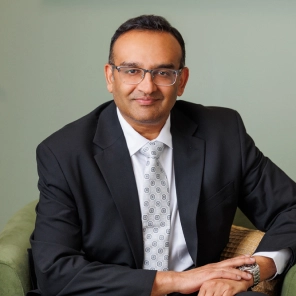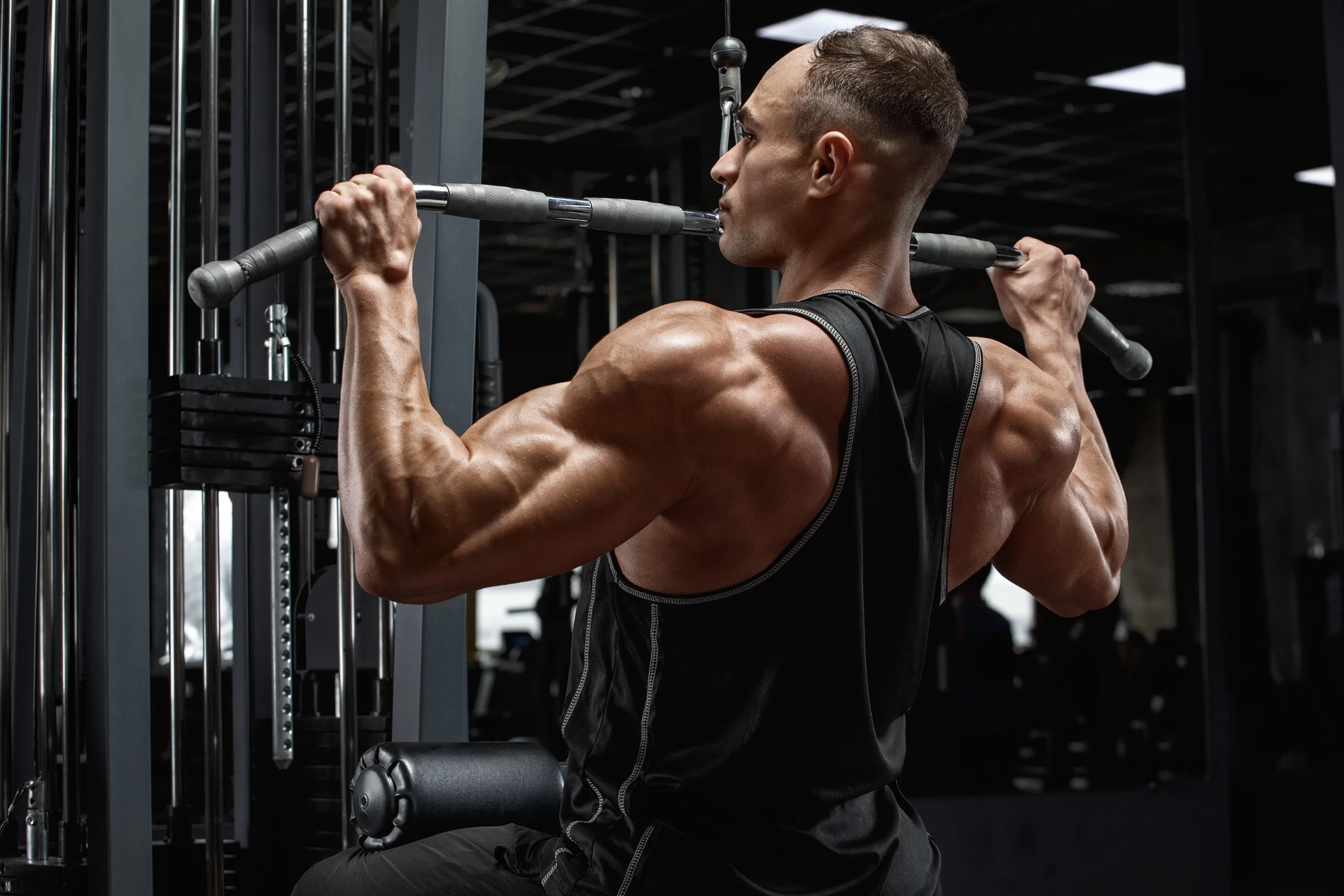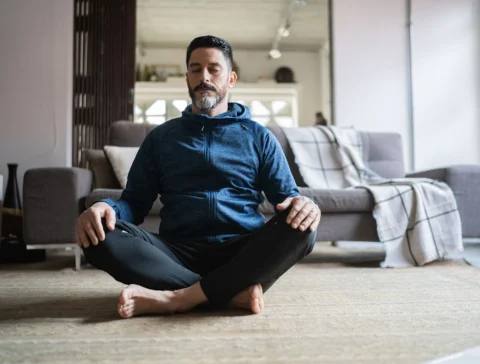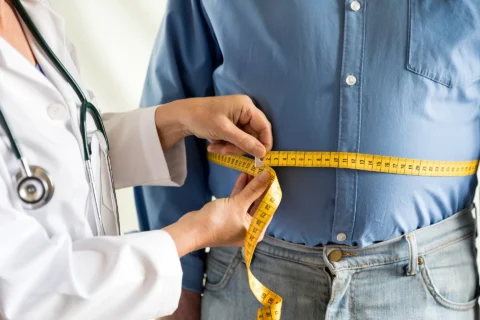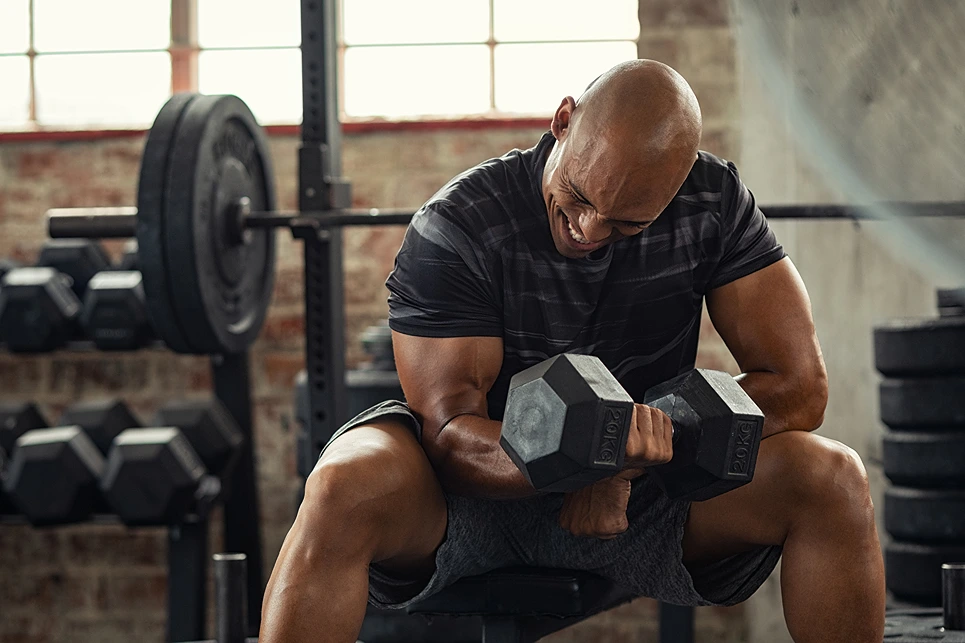
At Ethos Spa, we understand that bodybuilding is more than just a hobby – it’s a lifestyle.
That’s why we’re dedicated to providing you with the latest information on how testosterone replacement therapy (TRT) can take your muscle gains to the next level. Let’s dive in!
What is TRT and How Does it Specifically Apply to Bodybuilding?
TRT stands for testosterone replacement therapy. It involves administering testosterone directly into the body to increase levels. For bodybuilders, TRT can be used to enhance muscle growth and strength.
Testosterone is an anabolic hormone that plays a key role in building muscle mass. When levels are increased through TRT, the body is able to more efficiently synthesize protein for muscle growth. TRT also boosts strength gains by increasing the number of motor units recruited during weight training.
What Benefits Can Bodybuilders Expect from Using TRT?
Using TRT offers bodybuilders several advantages for gaining muscle and strength.
The most noticeable effect is the ability to recover faster between intense workouts. This allows you to exercise more frequently at higher intensities without overtraining or burnout.
TRT increases protein synthesis rates in the body.
So more of the protein from your diet is utilized to build lean muscle mass. This directly translates into bigger gains from each workout session. Less protein goes to waste or is broken down.
You’ll also experience significantly increased endurance on TRT. Workouts that previously left you exhausted become more manageable. You can push through plateaus with higher volume and intensity.
In addition, TRT enhances nutrient partitioning. This means nutrients get shuttled specifically into your muscle cells for growth and recovery rather than getting stored as fat. Your body becomes better at burning fat while adding and retaining muscle.
What Are the Recommended TRT Dosages for Bodybuilders and How Are They Determined?
The ideal TRT dosage is customized based on your current testosterone levels, muscle building goals, and how you respond to treatment. A typical starting dose is 100-200 mg per week. This can be administered as a single injection or divided into smaller doses.
Your doctor will check blood work to determine your testosterone levels before prescribing TRT. If levels are low, a higher initial dose may be recommended to normalize them. Ongoing blood tests help find the minimum effective dose for your body that allows you to reach and maintain peak levels.
How Should Bodybuilders Cycle TRT, and What Does a Typical Cycle Look Like?
The most common protocol is to use TRT continuously rather than cycling on and off. This maintains stable testosterone levels that support consistent gains. It also avoids the crashes that can occur when coming off cycles.
That said, some bodybuilders use TRT in a cycle of 12-16 weeks leading up to a competition. This maximizes muscular size and lean mass during the building phase. TRT is then discontinued or lowered to a TRT dose to harden muscle while cutting body fat.
A typical 16-week cycle may start with 200 mg/week for the first 4 weeks. The dose is then increased to 500 mg/week from weeks 5-12. For the final 4 weeks, the dosage is lowered back to 200 mg/week. This allows gains to be consolidated while tapering.
Always consult your doctor before beginning a TRT cycle. Follow prescribed guidelines for dosing and get regular blood work to monitor health and hormone levels.
What Dietary Considerations Should Be Taken Into Account When Using TRT for Bodybuilding?
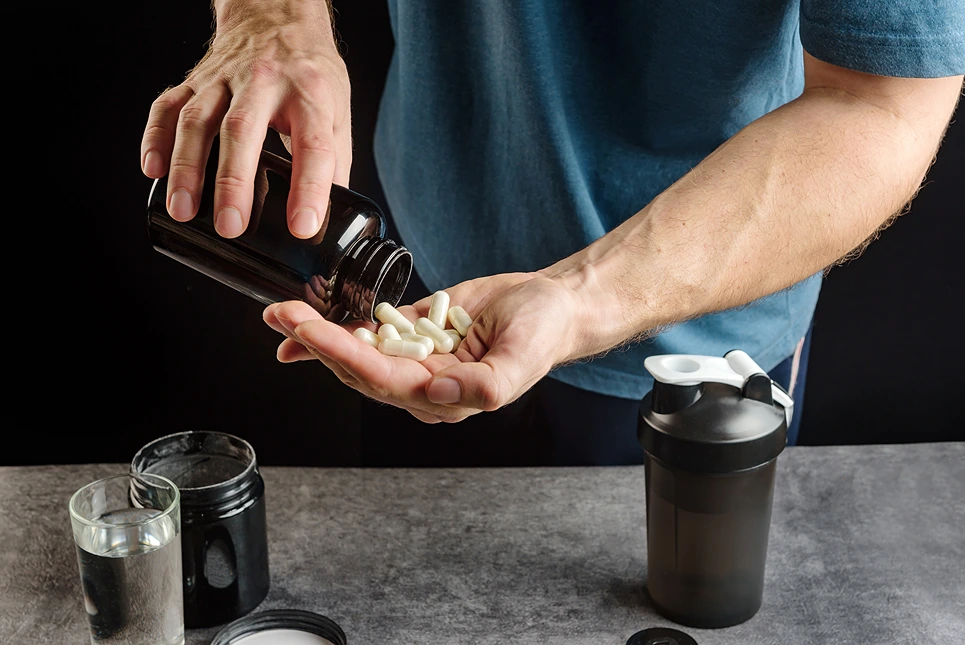
To maximize your muscle building potential on TRT, some dietary adjustments are recommended:
- Increase protein intake to 1-1.5 grams per pound of body weight daily to supply muscles with amino acids for growth. Focus on high quality sources like lean meat, eggs, and whey protein.
- Ensure sufficient healthy fat intake for hormone production and joint health. Get fats from fish, nuts, seeds, olive oil, avocados.
- Avoid excessive calories that lead to fat gain. But don’t restrict calories too severely either. Your improved nutrient partitioning on TRT will build muscle while burning fat.
- Hydrate well, especially around workouts to aid recovery.
- Limit sugar as it can contribute to estrogen production, negatively impacting testosterone levels and gains.
- Use carb cycling to match higher carb days with heavy lifting days.
- Take a testosterone-supporting supplement stack, like DHEA and zinc.
Adjust your diet over time based on how your body responds. The goal is to fuel your workouts and recovery without unnecessary fat gain.
How Can Bodybuilders on TRT Monitor Their Health and Hormone Levels Effectively?
To keep your body healthy and functioning optimally on TRT, regular lab testing is key. Here are some important health markers to monitor:
| Test | Purpose |
| Total and free testosterone | Optimally upper-normal range. |
| Estrogen Levels | Excess can cause unwanted side effects. |
| Complete blood count (CBC) | Checks for elevated red cell count. |
| Liver Enzymes | Ensures liver is handling TRT. |
| Lipid profile | Monitors cholesterol levels. |
| PSA | Screens for prostate cancer risk if over age 50. |
Get blood work done before starting TRT, at 4-6 weeks, then every 3-6 months once levels are dialed in. Testing more frequently provides valuable insight into how your body responds.
Use testing and tracking to refine your TRT protocol. The goal is to find the ideal dosage that has you feeling and performing at your best.
How Does TRT Interact with Other Supplements that Bodybuilders Commonly Use?
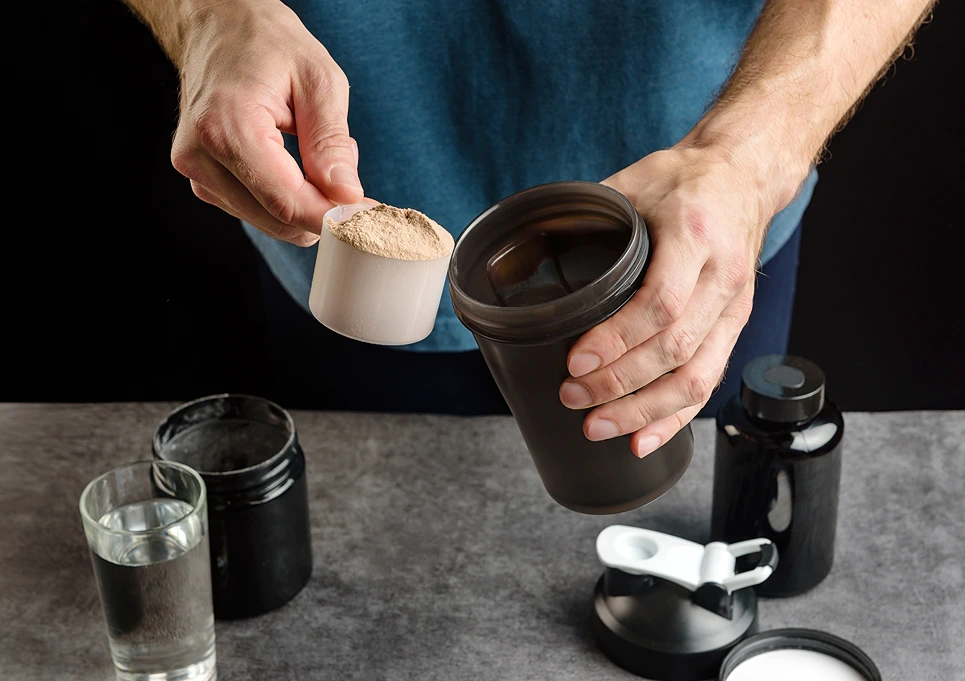
TRT works synergistically with certain supplements popular among bodybuilders:
- Whey protein enhances muscle protein synthesis from TRT.
- Creatine boosts strength and energy, enhancing TRT workout intensity.
- BCAAs reduce muscle breakdown further when combined with TRT.
- ZMA promotes greater increases in testosterone and IGF-1.
However, TRT may reduce the need for prohormones or excessive testosterone boosting supplements. Discontinue any hormone-affecting supplement you’re taking, and let TRT work as your primary testosterone increaser.
Avoid taking aromatase inhibitors alongside TRT without medical advice. Estrogen in balance with testosterone is healthy. Suppressing it can cause side effects.
TRT Bodybuilding FAQs
Is TRT Usage in Bodybuilding Competitions Allowed, and What Are the Rules?
Rules vary between bodybuilding federations regarding TRT usage. Some natural divisions ban TRT completely. However, TRT is generally permitted in non-tested divisions in organizations like the IFBB.
Competitors must have a valid prescription and work with their doctor to stay within a therapeutic range. Abuse of extremely high doses solely for enhancing muscle size is still considered cheating.
TRT dosages often have to be lowered temporarily for competitors to pass “polygraph test” questioning about drugs during competitions. So a doctor’s guidance is key.
Know your federation’s regulations before competing on TRT. Be prepared to provide evidence it is physician prescribed and you’re following medical guidelines.
What Legal and Ethical Considerations Should Bodybuilders Be Aware of Regarding TRT?
While TRT is a legal, valid treatment, there are some legal and ethical issues to consider:
- Importing, distributing, or sharing testosterone without a prescription is illegal.
- Using TRT solely for performance enhancement crosses an ethical line for some.
- Teen athletes should avoid TRT due to risks of premature closure of growth plates.
- Be aware TRT could affect health insurance eligibility if deemed for “lifestyle use”.
- Promoting TRT irresponsibly may encourage abuse by vulnerable populations like teens.
Ultimately, work closely with your doctor to use TRT in a safe, legal, and ethical manner. Educate yourself on the laws and risks. And be prudent about who you discuss your TRT use with.
What Is the Impact of Long-Term TRT Use on a Bodybuilder’s Health and Performance?
The long-term effects of TRT depend heavily on proper dosage and administration under medical supervision. When protocols are carefully followed, TRT can safely and sustainably enhance bodybuilding goals.
However, benefits are maximized when TRT is combined with regular health monitoring, a proper training and nutrition regimen, adequate rest, and overall healthy lifestyle habits.
The key is maintaining testosterone levels in a healthy, therapeutic range.
How Does TRT for Bodybuilding Differ from Other Forms of Testosterone Replacement Therapy?
The goal of TRT for general medical treatment is to bring testosterone to normal levels and relieve deficiency symptoms. Doses are meant to mimic the body’s natural testosterone production.
For bodybuilding applications, the aim is to elevate testosterone to the high-normal range for enhancement of muscle building potential. Dosages well above medical TRT levels may be used.
Due to the performance-driven goal, bodybuilders often administer more frequent injections – up to two to three times weekly. This creates steadier spikes in testosterone. General medical TRT uses once weekly dosing or gels/patches for more gradual increase.
The Takeaway
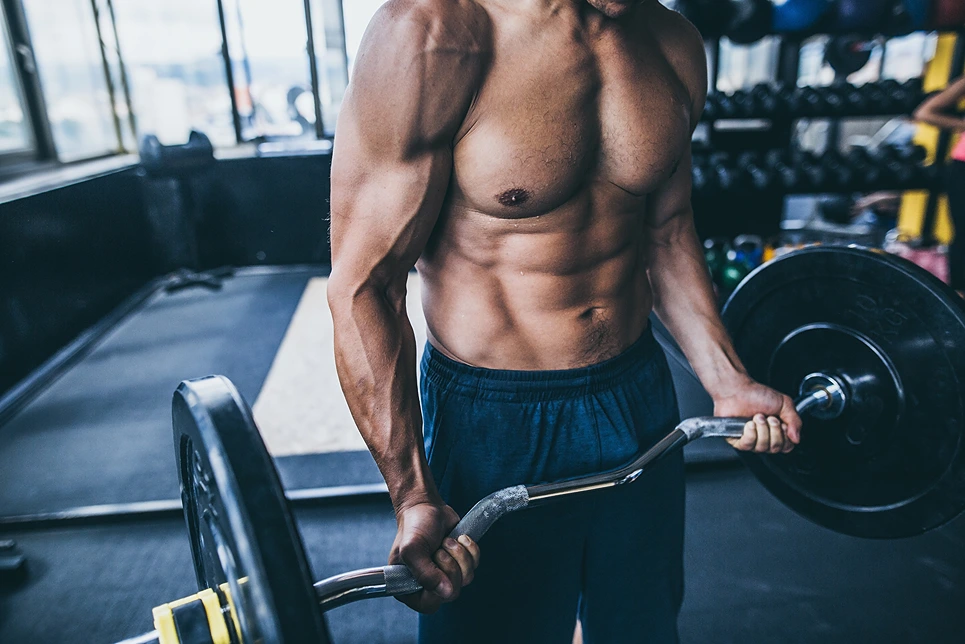
We hope this guide gave you a comprehensive overview of how to utilize TRT to take your physique to the next level. While TRT is a potent tool, keep side effects and health precautions in mind. Work closely with an experienced medical team for responsible use.
Here at Ethos Spa, we offer science-backed wellness and aesthetic treatments to help you look and feel your best. Contact us today to learn more about our services or schedule your next appointment!
